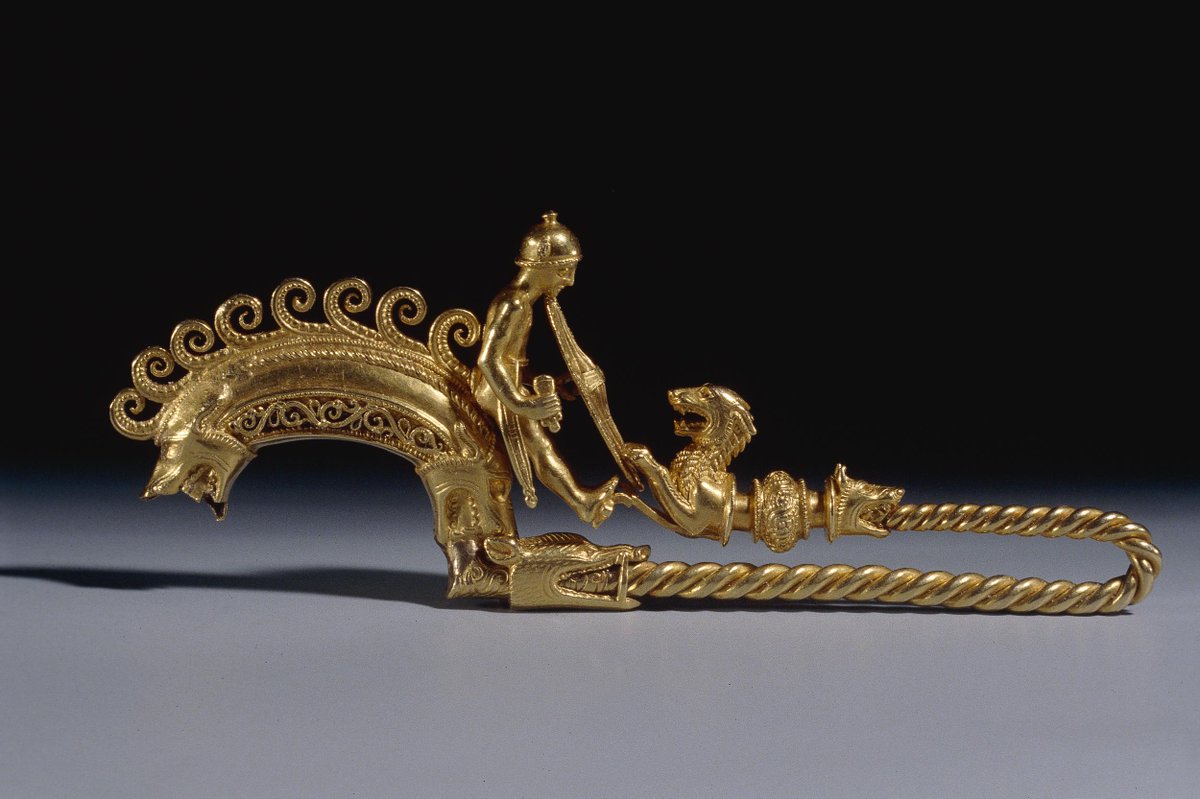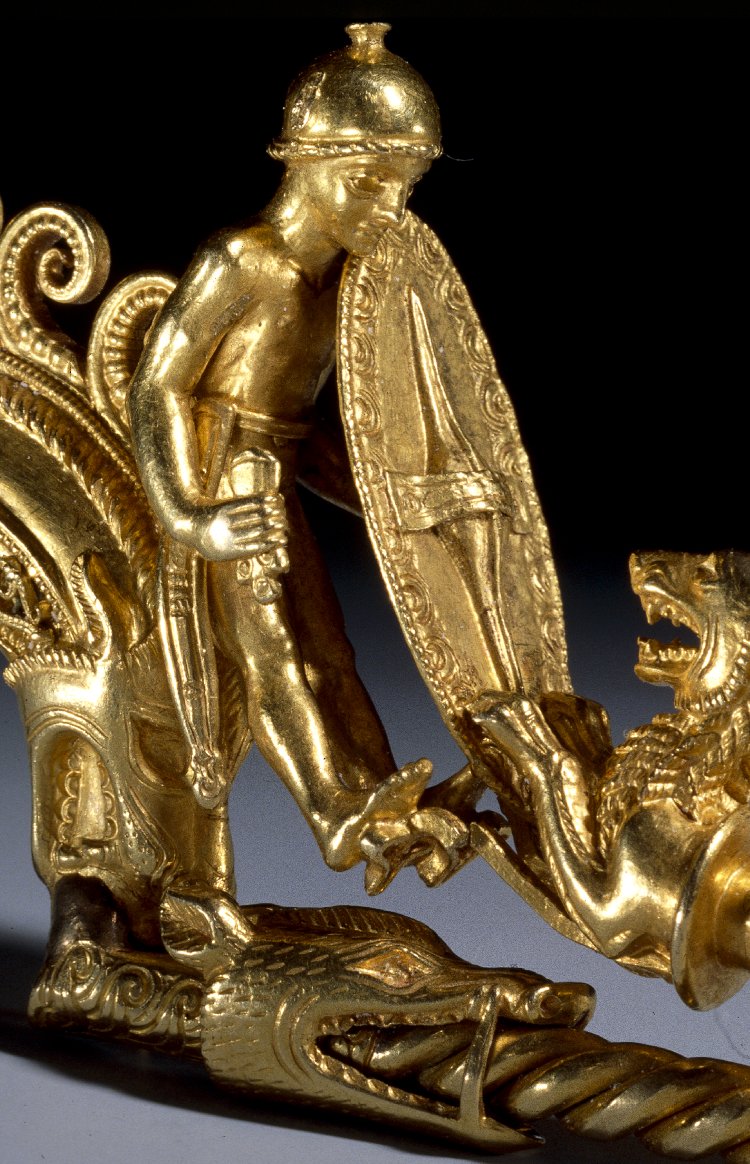
This is a great question, so let's get into this in more detail!
The question here is is essentially, "what did Philip II (father of Alexander) do to the Spartans, and how do we know that?"
A thread! 1/25
The question here is is essentially, "what did Philip II (father of Alexander) do to the Spartans, and how do we know that?"
A thread! 1/25
https://twitter.com/garglfluz/status/1350835754335924225
First off, our sources for the life of Philip II are really poor. Unlike the multiple biographies we have of his son Alexander III ('the Great'), we have no sustained biography of Philip II. Consequently, we're left to piece together his reign from disparate sources. 2/25
There's a strong tradition that Philip II just left the Spartans alone. That tradition comes from Plutarch, who preserves that classic Laconic reply where Philip threatens that if he enters Spartan territory he would destroy them and they respond 'If' (Plut. De Garr. 17). 3/25
Frustratingly, some modern scholars repeat that tradition uncritically (e.g.Borza, In the Shadow of Olympus (1990), 225; otherwise excellent book) and so it gets included in things like the wikipedia article with the Laconic phrase and nothing more: en.wikipedia.org/wiki/Philip_II… 4/25
But we actually have a fair bit of evidence that Philip did invade Sparta and that the end results were less than the Spartans might have hoped for! 5/25
The first of these is an inscription (IG 4^2,1 128; trans here: attalus.org/poetry/paeans.…) of a poem written by Isyllus for the Asclepieion (temple to Asclepius) in Epidauros. 6/25
The poem praises that the god Asclepius "rescued the Lacedaemonians from grievous doom" "in the days when Philip [II], wishing to destroy the royal authority, led his army against Sparta"
Now we may be skeptical about claims of deliverance, but clearly something happened! 7/25
Now we may be skeptical about claims of deliverance, but clearly something happened! 7/25
Then we have Plutarch and his Spartan Sayings, several of which concern defiance to Philip. Unlike Isyllos, who is writing only a few decades after the event, we have to remember that Plutarch is writing more than four centuries after Philip's life. 8/25
And Plutarch quite often records 'famous' sayings which better sources omit - Plutarch never lets the truth get in the way of a good story. He also has a tendency to attribute the same clever saying to multiple people over different works. 9/25
Nevertheless, it's clear that there was some sort of diplomatic exchange, that the Spartans were unwilling to bow
Plut. Mor. 219F notes Spartan defiance, "When Philip invaded the Peloponnesus" and 218F4 is clear that was a Spartan "war against Philip." 10/25
Plut. Mor. 219F notes Spartan defiance, "When Philip invaded the Peloponnesus" and 218F4 is clear that was a Spartan "war against Philip." 10/25
Finally there is Plut. 217F, "Antiochus, when he was Ephor, hearing that Philip had given Messenians their land, asked if he had also provided them with the power to prevail in fighting to keep it" suggesting that not only did Philip invade, he took territory. 11/25
(And as an aside, the answer to Antiochus' question was almost certainly 'yes' - the Macedonians would, after all, smash the Spartans flat in 331 at the Battle of Megalopolis, Curt. 6.1.1-21, killing a Spartan king and inflicting 5,300 casualties) 12/25
Our most useful source is Polybius. Now Polybius was a Megalopolitan. Megalopolis was founded by the Arcadian League after Leuktra explicitly as a check against Spartan power, on land taken from Sparta.
The Megalopolitans were enemies of Sparta and Plb. is no exception. 13/25
The Megalopolitans were enemies of Sparta and Plb. is no exception. 13/25
So Polybius is eager to tell us absolutely anything that makes the Spartans look like fools, but he is also a lot more careful and scrupulous than Plutarch and closer to events (and consequently, rather more reliable). 14/25
Polybius notes in a set of speeches (Plb. 9.28ff) that Philip "Accordingly he came with his army and destroyed the earth by cutting and the houses with fire, finally partitioning your [=the Spartans] town and the country... 15/25
...he allotted part of it to the Argives, part to the Tegeans and Megalopolitans and part to the Messenians"
So it seems there was no battle, but just a lot of raiding and then Philip reached some settlement in which significant territory was lost to Sparta. 16/25
So it seems there was no battle, but just a lot of raiding and then Philip reached some settlement in which significant territory was lost to Sparta. 16/25
Plb returns in an aside on treachery (Plb. 18.14.1-15) that the Arcadians joined Philip and "by inducing Philip to enter the Peloponnesus and humbling the Lacedaemonians...allowed all of the inhabitants of the Peloponnesus to breathe freely...recovering the territory..
17/25
17/25
...and cities of which the Lacedaemonians (=Spartans) in their prosperity had deprived the Messenians, Megalopolitans, Tegeans and Argives."
This is an easy passage for the unfamiliar to mess up, because Polybius has more than one Philip to deal with. 18/25
This is an easy passage for the unfamiliar to mess up, because Polybius has more than one Philip to deal with. 18/25
Immediately before this digression on treachery, Polybius is talking about Philip V (r. 221-179), but what makes it clear that here he means Philip II (r. 359-336) is that he poses this thought in answer to an accusation of treachery *by Demosthenes* 19/25
And while there is more than one Demosthenes, in this case it is clear that the Athenian orator and politician (384-322) is meant, meaning that the Philip in the passage must be Philip II, not V. 20/25
That Polybius isn't just blowing smoke seems confirmed by Tacitus, who notes that this very land seizure came up as a legal issue before the Roman Emperor Tiberius (Tac. Ann. 43). 21/25
Tacitus notes a dispute "upon the legal ownership of the Temple of Diana Limnatis" which "had been wrested from [the Spartans], however, by the Macedonian arms during their war with Philip and had been returned later by the decision of Julius Caesar and Mark Antony." 22/25
Once again, that the Philip meant is Philip II is made clear by Tacitus' brief legal history of the case, which notes judgements in favor of the Messenians by Antigonus Doson (r. 229-221) and the Roman L. Mummius (cos 146), so the Philip must be II, not V. 23/25
So what can we conclude? Well, there was a well established tradition that Sparta had defied Philip, that Philip had marched against them in arms, and that the result of that march had been that Sparta lost important territory on its borders. 24/25
Which is why I responded to Pressfield treating the Laconic 'if' as a mic-drop moment like this:
(end/25)
https://twitter.com/BretDevereaux/status/1346686713838653440
(end/25)
Oh, as a quick addendum, Tiberius decided the land dispute in favor of the Messenians, on the grounds that the decisions in their favor were long-standing, dating back to Philip II and had been repeatedly confirmed by both Macedonian and Roman authorities.
• • •
Missing some Tweet in this thread? You can try to
force a refresh




